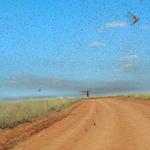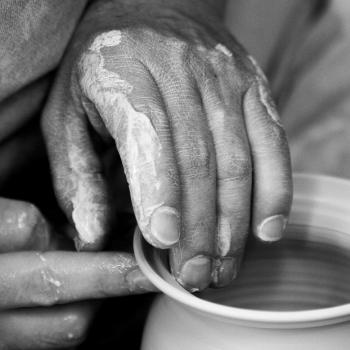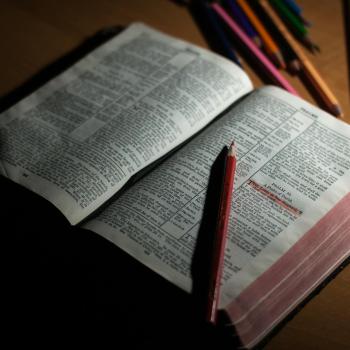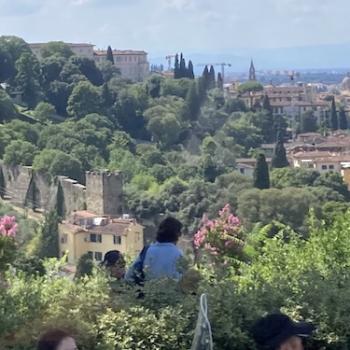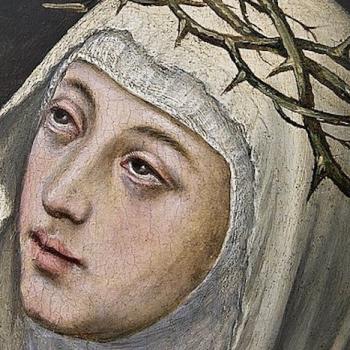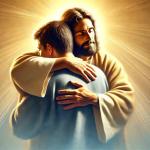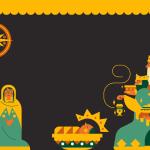Where should we look if we wish to see the hand of God at work? Another way of asking the question: if divine revelation is happening in the world, how would we know?

Where divine revelation happens
We might want to start by noticing things around us: the rising of the sun, the spring thaw. The overwhelming scale of the universe. The moment a sickness leaves a body, or that a check “miraculously” clears the bank.
Yes. Maybe.
But when we start here we are showing a lack of nerve. It’s like when a child (or adult!) in class hears a hard question and looks down at her desk so the teacher won’t make eye contact with her.
Those answers, while not wrong, avoid the response that is at one and the same time the most obvious and the most difficult answer: God reveals Godself in us.
I call it the most obvious because of the shape of the Christian gospel. When the world had forgotten how to recognize the hand of its creator, God inhabited a human body and dwelt among us. This meant, for the 7th theologian Maximus the Confessor, that human nature itself has become a mystery, a site of revelation. “Christ elevated human nature to himself, making that nature itself another mystery…”
For humans especially, whom I will assume comprise the bulk of this blog’s readers, human nature is the primary site of divine revelation.
The human energy of Christ
By the late classical era, the church had clarified in its christology that Jesus was fully human and fully divine. Still, some theologians argued that Jesus was a kind of human performance that God put on for us. Like the sunrise or the check in the bank, Jesus was a display of God’s power and care that existed “out there” in the world.
Maximus argued against this that when we say Jesus was fully human, we must mean that he had not only a body and soul as we do, but also what Maximus called “human energy.” Energy names the power that gives us our natural way of being a creature in the world. An exhausted parent gets up to care for a child not because their body feels rested, and not because they are in that moment flooded by will power in the depths of their soul, but because they rely on a natural— even biological we could now say—impulse, or energy, to do the next right human thing. (I’ll need to say more in another post about the need to pay attention to habits that affect our human energy, for good and for ill.)
Jesus had all of that normal human energy, and it’s there, not anywhere else, that his life reveals God, becomes a divine revelation. He does human things in a divine way, Maximus says.
Little incarnations
But the risk of saying it that way is that now we place ourselves in the midst of the discussion. We just made eye contact with the teacher. Now all that exists as the life force that my parents named “Tony” is fair game for divine revelation. I have, at least potentially, become “another mystery.”
Theology 101 teaches that humans are made in the image of God. Maximus, though, takes us up to the upper level classes. Yes, all things are made in God’s image, little logoi reflecting the divine Logos. Humans, though, are the ones invited to take on this likeness by practicing the virtues like faithfulness, hopefulness, love, courage, and justice. In doing so, he said, we don’t just remain images of God. We develop practices that “manifest God who is invisible by nature” in our very bodies. All things are little images; humans are called to become little incarnations.
Becoming a little incarnation is not something we do alone, of course. The lives of saints and mentors show how natural human energy can be caught up into the energy of God. When I hear of the remarkable acts of faithfulness among Rwandan Christians, for instance, forgiving those who slaughtered their families, I am ready to say that I see human nature flooded from within by a mysteriously divine revelation.
Mysterious Me
And then eventually I find that I too am called not just to claim my creation in God’s image, but to own my calling to grow into God’s incarnate likeness. I noticed that the hope and faithfulness taking shape in me is analogous to what I have seen in others: in saints like Maximus, in the Rwandan church, in the prayers of my grandparents…
And as we consider all this evidence together, we find ourselves compelled to stand and say— bravely, even as our voice shakes and our knees wobble—that in Christ, we ourselves have become a beautiful, infinite, divine mystery.

